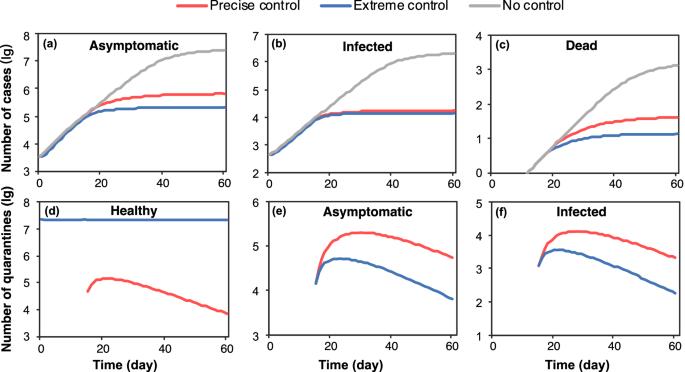Precise control balances epidemic mitigation and economic growth
IF 8.8
Q1 ENVIRONMENTAL STUDIES
引用次数: 0
Abstract
The outbreak of the coronavirus pandemic in 2019 has profoundly affected public health and the global economy. Policymakers face the challenge of evolving virus mutations and one key measure involves the use of Health Code to classify the public and enforce quarantine policies. Despite widespread adoption, its effectiveness in mitigating the epidemic is not well understood. Here, we proposed an infection component model to assess the Health Code’s effectiveness. We found that “Precise control” using Health Code can strike a balance between economic growth and public health, reducing 97% of deaths and improving 1% of GDP compared to “No control” or city shutdown policies. Moreover, its medical costs are only 43% of the latter. However, its effectiveness diminishes if the basic reproductive number ( $${R}_{0}$$ ) exceeds 16.5, indicating the end of this epidemic with “Precise control”. These findings have important implications for policymakers in developing effective strategies to combat the pandemic.

精准控制兼顾疫情缓解和经济增长
2019 年爆发的冠状病毒大流行对公共卫生和全球经济产生了深远影响。政策制定者面临着病毒变异不断发展的挑战,其中一项关键措施是使用《健康代码》对公众进行分类并执行隔离政策。尽管《健康代码》被广泛采用,但人们对其在缓解疫情方面的效果并不十分了解。在此,我们提出了一个感染组件模型来评估《健康守则》的有效性。我们发现,与 "不控制 "或城市关闭政策相比,利用《卫生法典》进行 "精确控制 "可以在经济增长和公共卫生之间取得平衡,减少 97% 的死亡人数,提高 1% 的 GDP。此外,其医疗成本仅为后者的 43%。然而,如果基本生殖数(${R}_{0}$$)超过 16.5,其效果就会减弱,这表明 "精确控制 "将终结这种流行病。这些发现对决策者制定有效的抗击疫情战略具有重要意义。
本文章由计算机程序翻译,如有差异,请以英文原文为准。
求助全文
约1分钟内获得全文
求助全文

 求助内容:
求助内容: 应助结果提醒方式:
应助结果提醒方式:


